MOUNTAIN PROVINCE, May 4, 2021 – As the program comes to a few steps closer to being granted an extension, the Department of Agriculture – Special Area for Agricultural Development (DA-SAAD) Program conducted a social mobilization training and leveling-off through a two-day training from April 15 to 16 at Teng-ab Pastoral Complex, Bontoc for 25 SAAD staff.
The activity aims to provide its implementers a uniform understanding of the social mobilization process in the context of the program implementation toward establishing communal enterprise development among beneficiaries.
Reinforcing output-driven initiatives
SAAD technical working group members, Ms. Aida Y. Pagtan and Ms. Leonora K. Verzola collaborated for a thorough discussion of the topic.
The experts are also former coordinators of the Social Mobilization Participatory Invest Plan and Agribusiness (SMPIP) and Agriculture Agribusiness Income Generating Activities (AAIGA) of the Cordillera Agricultural Resource Management Project (CHARMP).
At the opening of the training, Mountain Province – Agricultural Program Coordinating Officer (APCO) Beverly Pekas emphasized the importance of service the SAAD implementers render to the marginalized farming community in the province.
Being in the frontline of the implementation, Assistant Operations Officer Ms. Daisy Yogyog and SAAD Regional Planning Officer Ms. Leah Mon both reminded the participants of the core of the program – from enabling the rural poor to engage in farming to transforming them into agri-preneurs and establishing active enterprise in the community, contributing both to project sustainability and food security.
“Daytoy ket panag isagana iti tattao nga mang-implementar iti project tapnu adda pagturungan na ken iti ited ti SAAD ket agtul-tuloy,” [Social mobilization is preparing the people who implement the project towards attaining its goals by embracing the responsibilities attached in accepting the project and is equally important as ensuring the projects’ sustainability,] Ms. Aida reiterating the importance of community mobilization prior to intervention delivery.
Boiled down, the program aims to free people from their acquired state of poverty, whether heightened by unequal distribution of opportunities or a presence of armed conflict within the community.
The implementers were encouraged to immerse in the community; to live, respect, and learn from the locals; to encourage participation and build mutual trust by engaging them in crucial decision-making; and to tailor-fit approach from what they know, build on what they have, and teach by showing.
Mission: empowering communities by transforming farmers as agri-preneurs
In the training, a Business Model Canvas (virtual canvas with nine rectangles) was introduced to the implementers utilizing existing projects as case studies.
The canvas served as a map of indicators on the readiness of the associations for enterprise expansion. It also elaborates the difference between a “livelihood” and an “enterprise” – which most of the time appears as a usual theme of the program.
As SAAD matures, while retaining livelihood provisions and broadening beneficiaries to serve more farmers, impacts through value-adding activities, creating labor opportunities, expanding market access, and choices are now reinforced to achieve the program’s objective.
Through SAAD implementers’ exposure to frameworks of development implementation, they acquire competence in driving the farmers to the program’s desired results. This is a positive indicator to augment confidence that the program secures the highest quality of service, backed with theoretical approach and balanced with community immersion. ###
Writer: Dinah D. Ay-yango, SAAD Mountain Province Information Officer

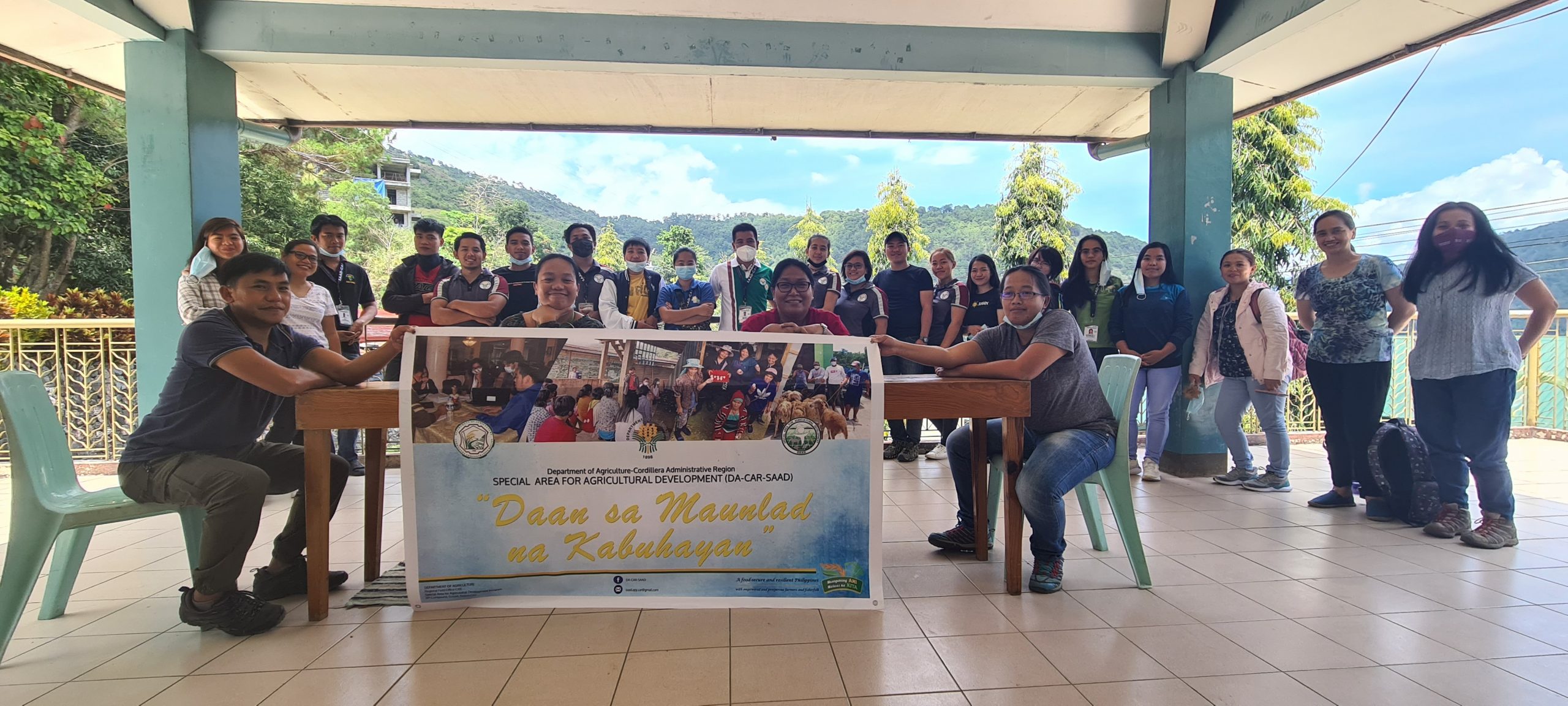
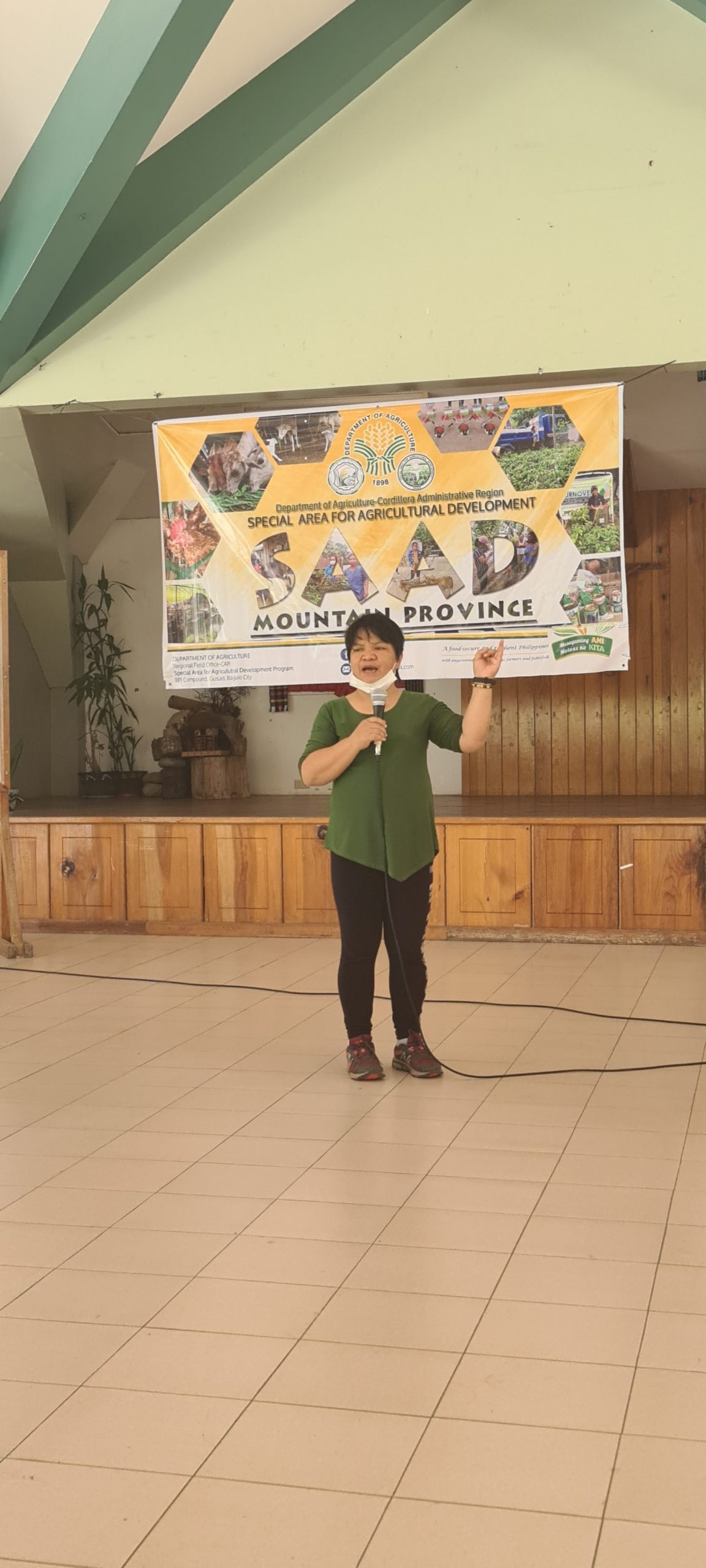
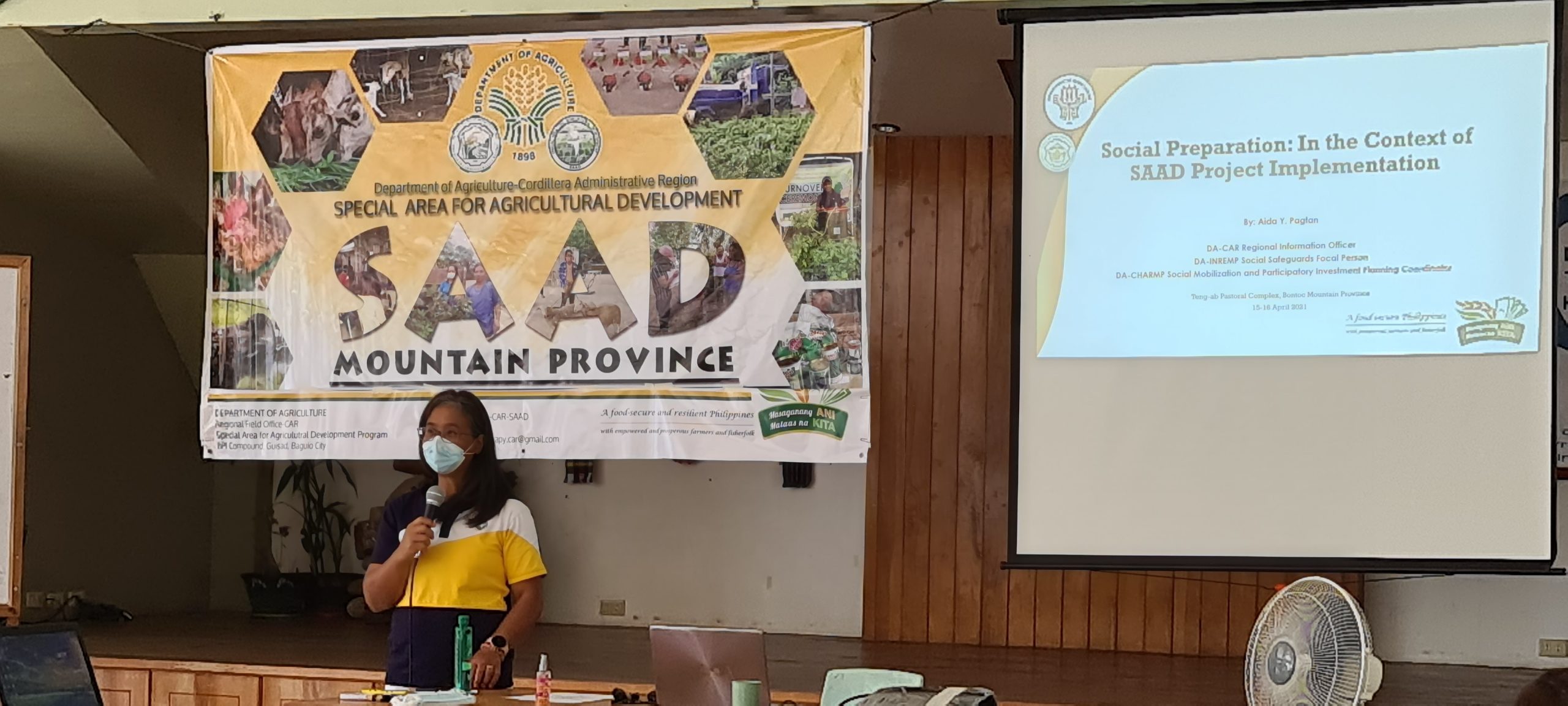
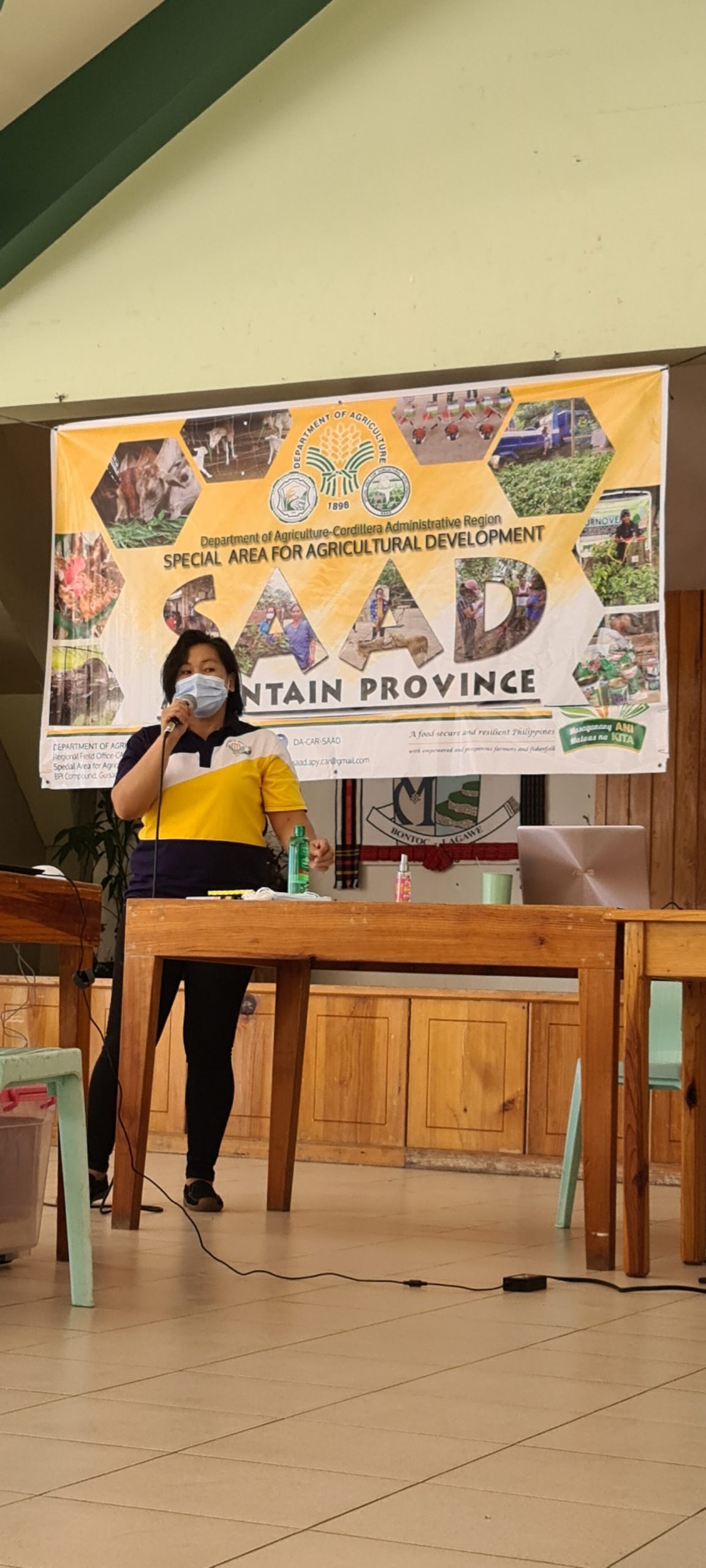
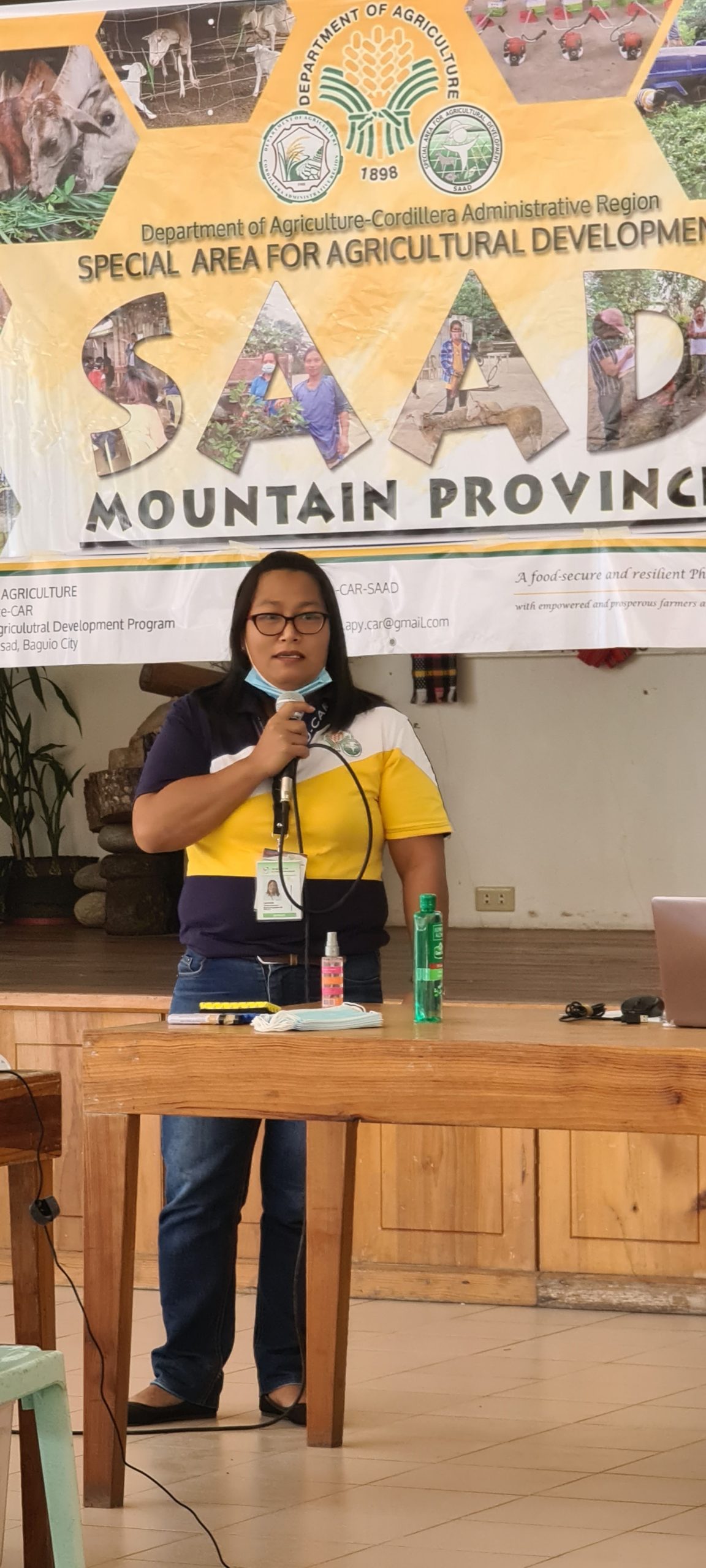
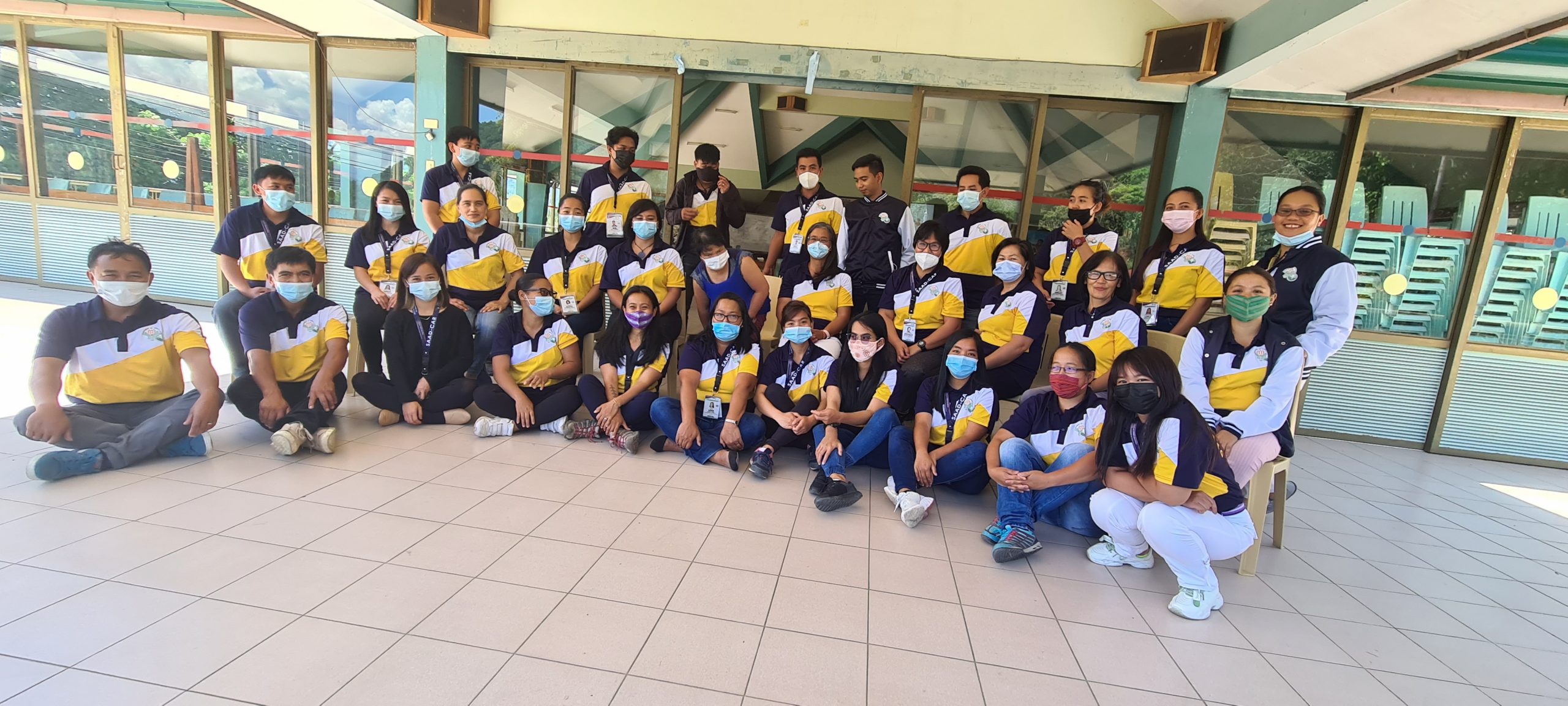
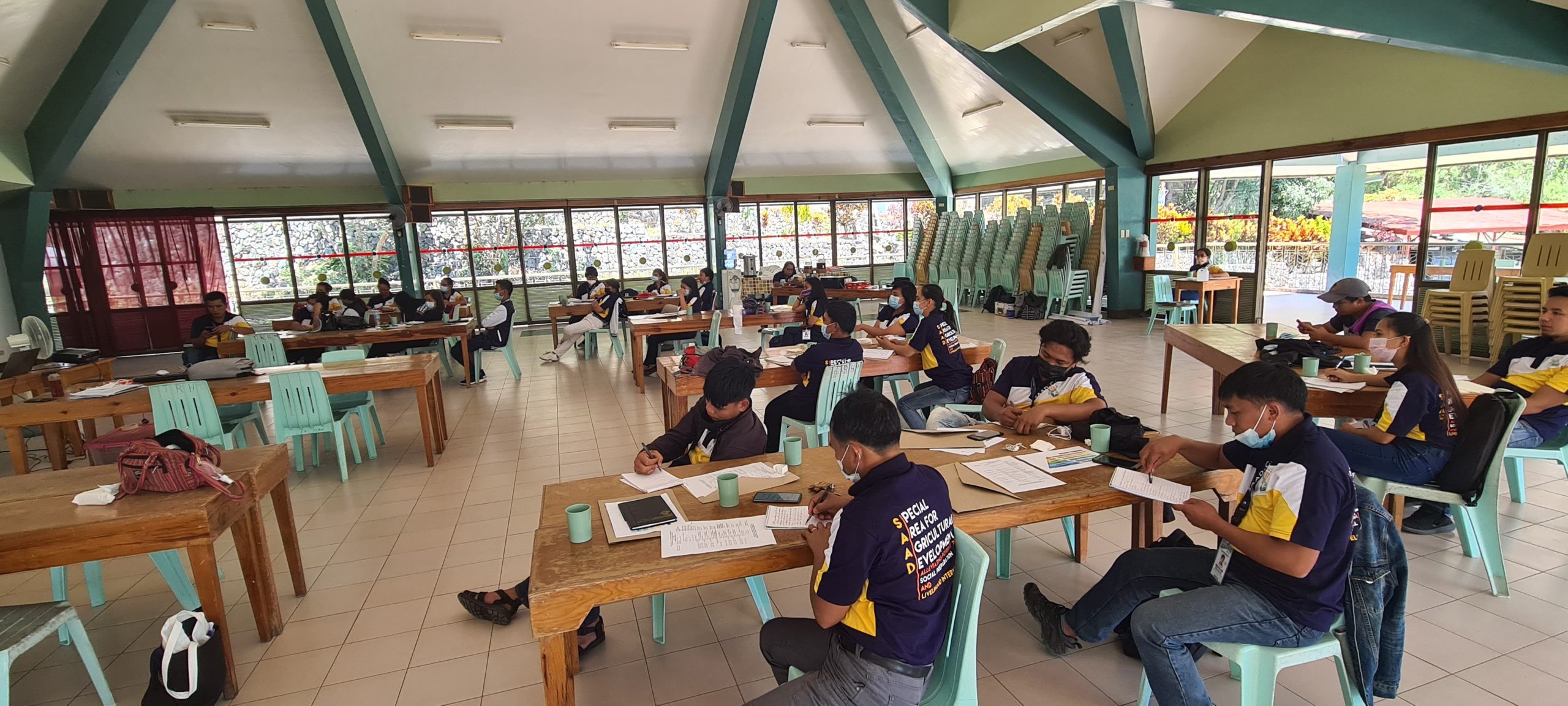
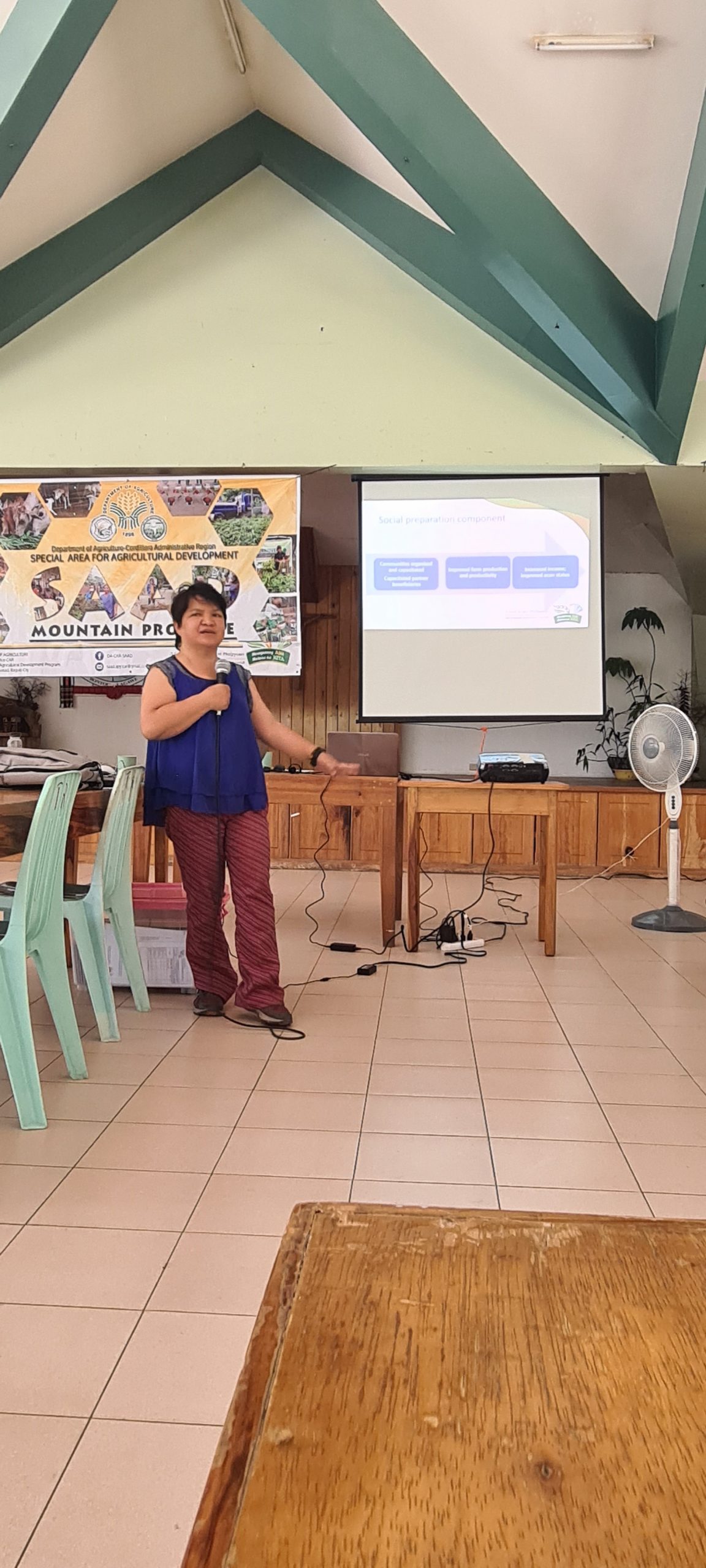
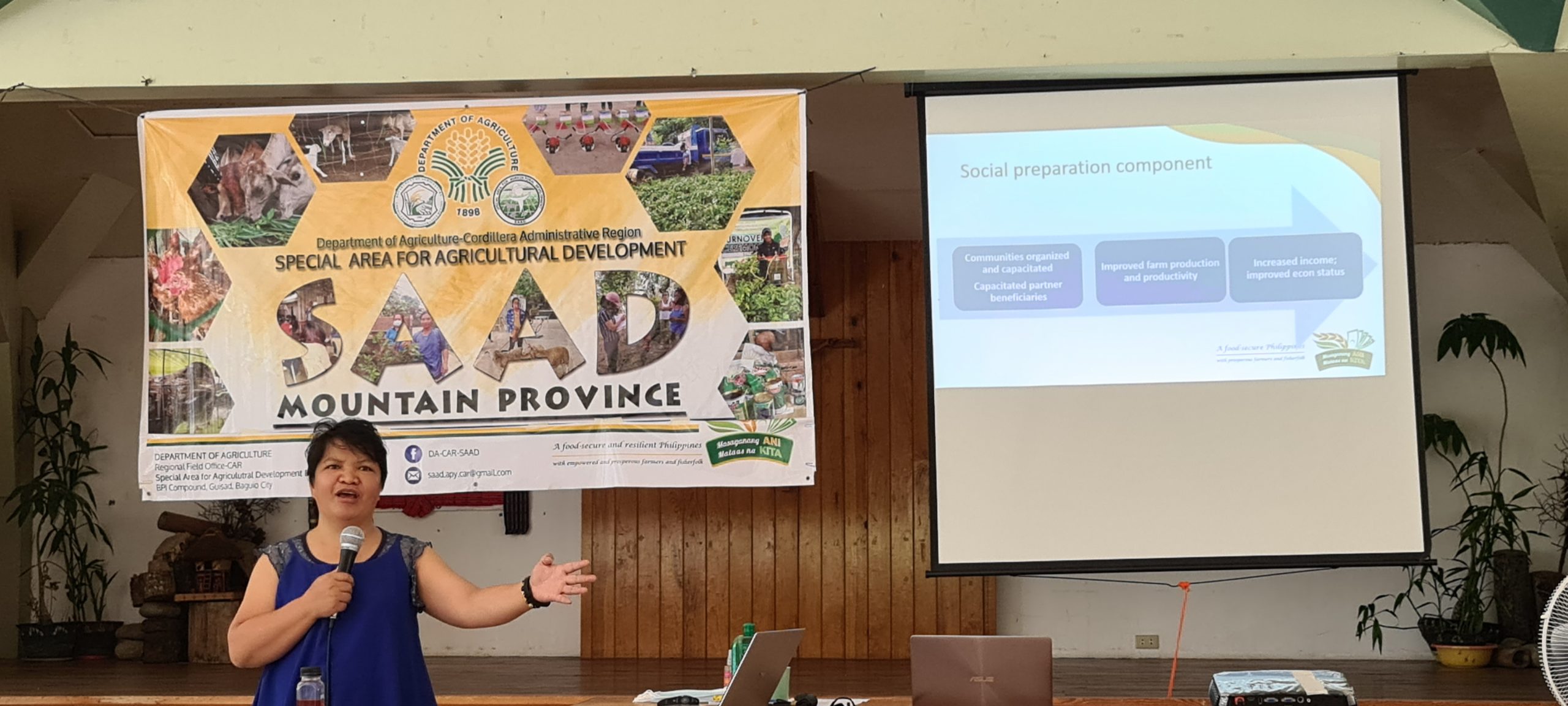
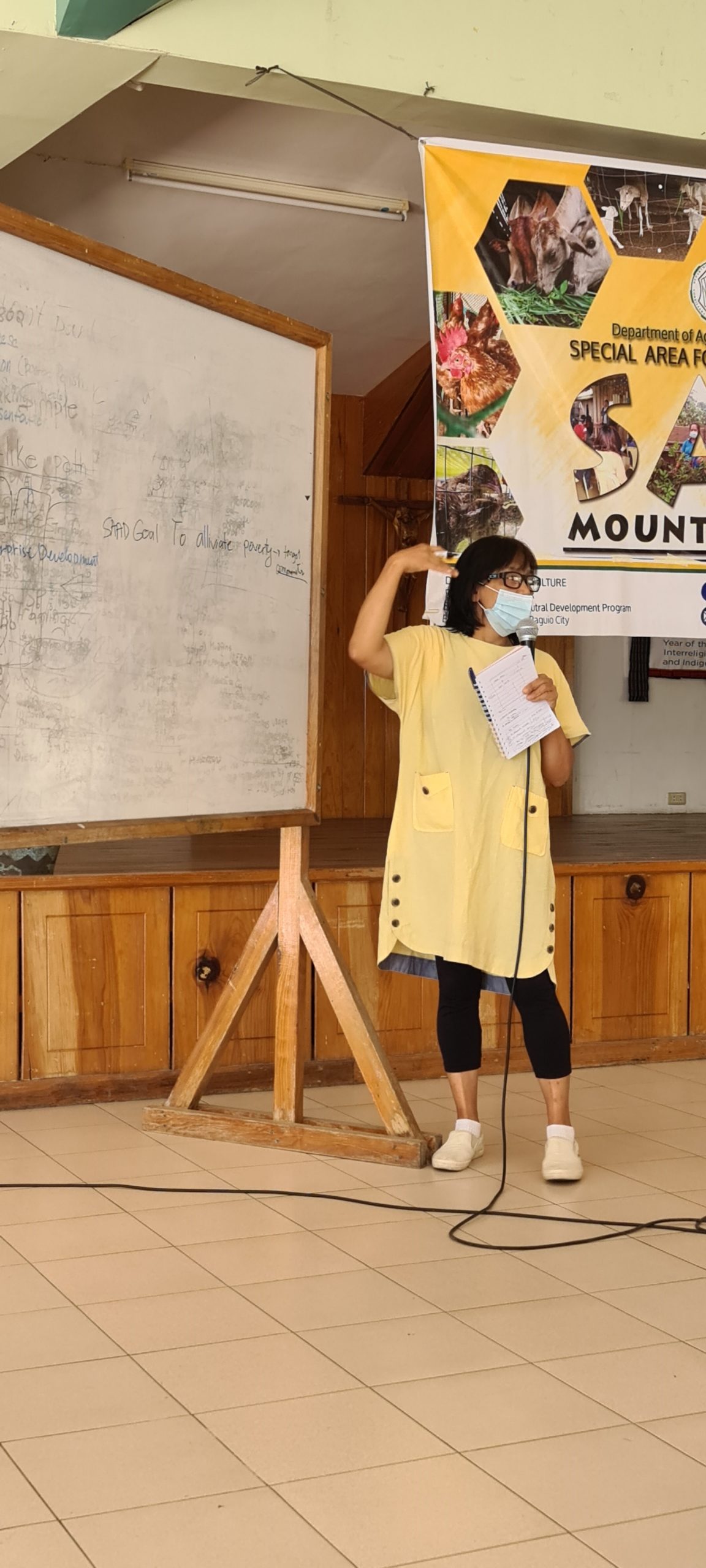
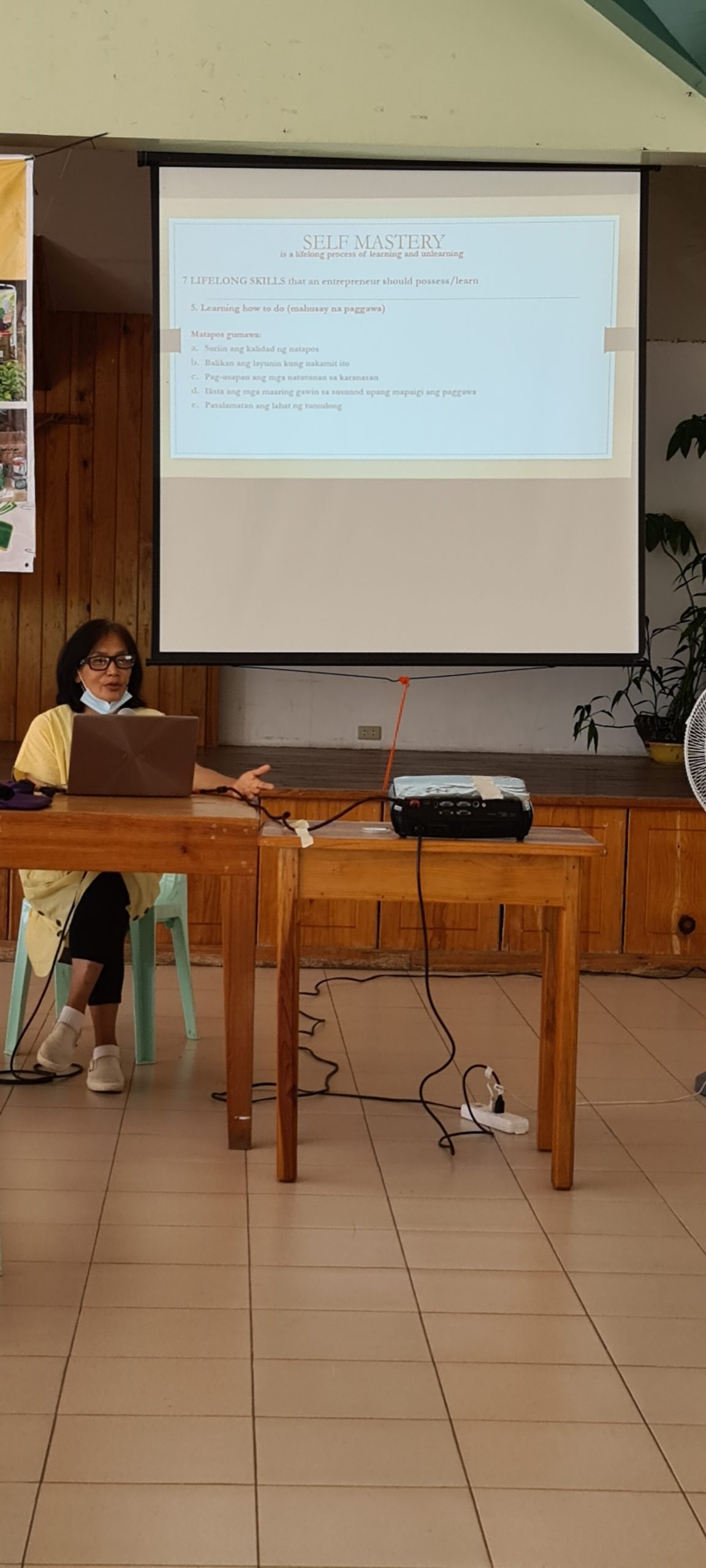
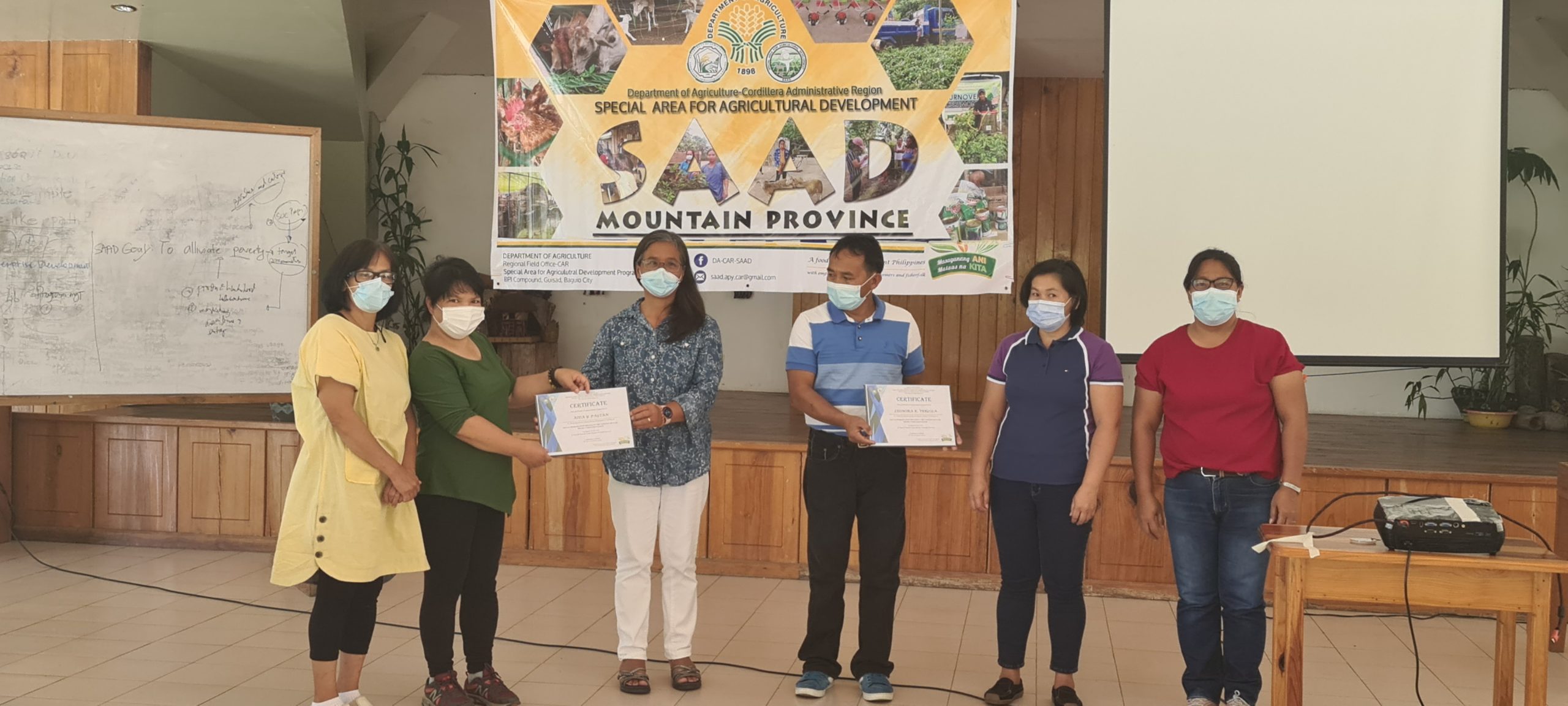
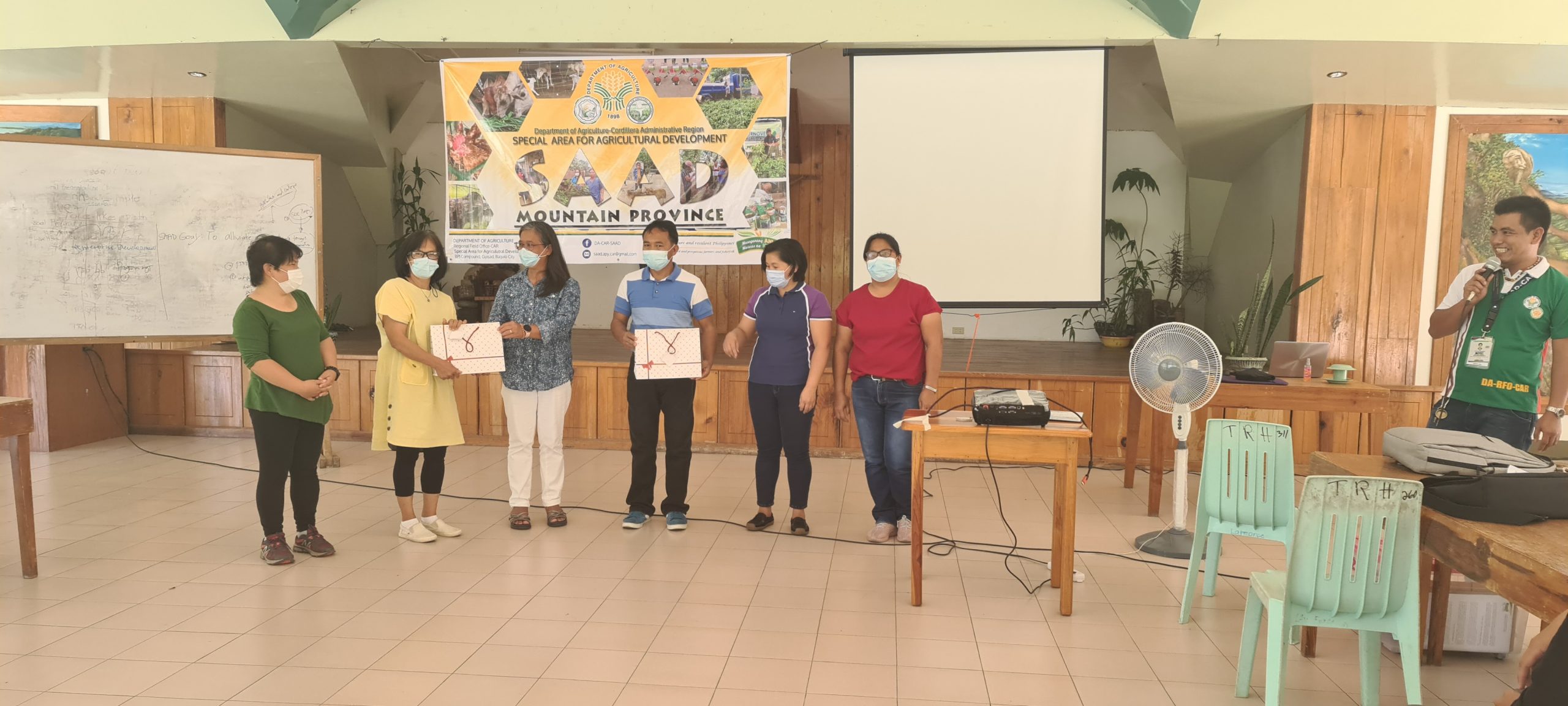
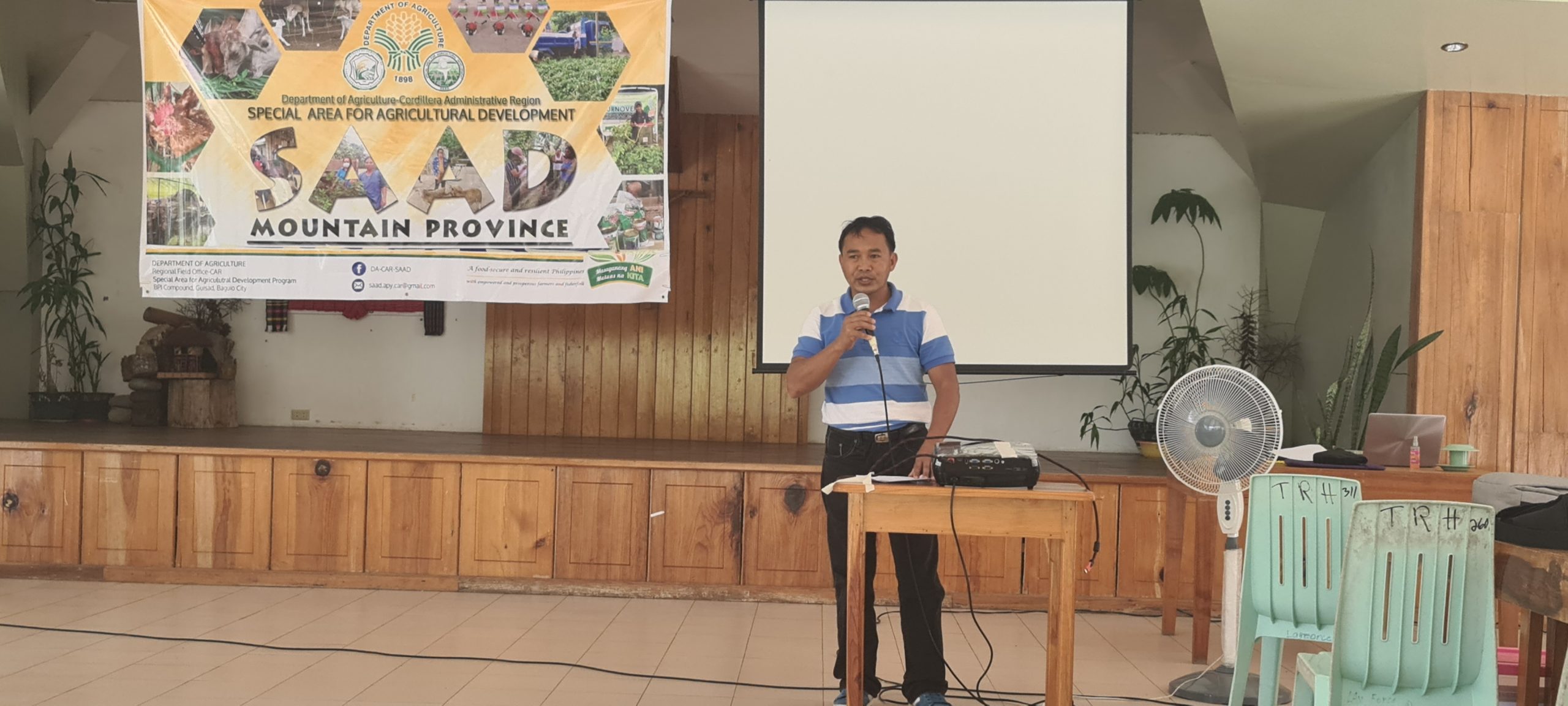
Comments (0)